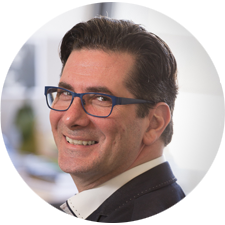
Machu Picchu2016
BLOGS

Michael Andolino
Sea of Orange, Sky of Gods
September 27, 2016
Wednesday, September 28
The Incans surely must have been a physically powerful people, methodically quarrying various types of stone, intending each for a specific purpose, moving boulders across valleys, hoisting, hauling, honing and perfectly fitting them with bare hands and scant tools. Fervent, thousands of citizens cycled in and out of public service to fashion buildings and structures across vast massifs and staggeringly varied altitudes. In this realm of gold, of worship, of function over form, of glowing tapestries that, to this day, weave a resolute sense of commitment and belonging, how strong were Incans in the face of death? They were steeped in their religious practices and perhaps profoundly comforted in their belief that they were Inti, children not of a lesser god, but of the highest and seemingly strongest of their many gods: the Sun, itself.
Did this somehow inform their philosophy on death and the loss of loved ones in ways that made them more capable than us mere, modern tourists to process the shock, the grief and most importantly, the healing? As I neared the end of the Incan Trail and scrambled up a steep, leaning wall to reach the Sun Gate, I beheld Machu Picchu from above. Wondrous, the site is framed by elevated plateaus and towering peaks that both adorn and gaze down upon them. An endless, encompassing range of mountains seems to have roiled toward the citadel’s location and yet relented and settled into an idyllic tableau knowing it would someday serve as its perfect frame. Maybe the Peruvian Andes themselves, or the gods the Incans believed to have inhabited each mountain, chose to surround the plateau to create Nature’s theatre in the round. The Incans must have known that a sense of place is at the core of humanity.
My sister was not with me. I continued to stare at the citadel, consciously repeating its beauty over and again. I felt neither my sister’s presence, nor my mother’s. I lost them along with my grandfather and aunt to cancer. Mom was 46. My sister was 45. Earlier this year, I was with my father, who had a lobectomy owing to adenocarcinoma. Cancer has ravaged my family. I climbed Machu Picchu for them, for my close family friends, and for people I will never meet. I climbed because I was thrilled to join a courageous group of multiple myeloma patients and their caregivers, physicians, nurses, clinical trial managers and others on a mission to climb and raise funds for the Multiple Myeloma Research Foundation (MMRF). I climbed for the MMRF because of their remarkable track record and fiscal responsibility, which ensures that 90 percent of every donation funds actual research. I climbed with the MMRF, CURE and Takeda Oncology as part of this program, Moving Mountains for Multiple Myeloma.
I even looked like an actual climber because of the bright orange gear, a sea of us winding, sometimes trundling on the serpentine Incan Trail with a professional camera crew that documented our journey. I climbed to raise awareness about a disease that people often confuse with skin cancer and other maladies. I climbed with extraordinary, funny, intelligent, accomplished, open, kind, and generous people, many of whom have painful, yet somehow hopeful relationships with cancer. Certainly Takeda and the MMRF are among a few key players responsible for fueling that hope with palpable progress against what was once an almost immediately terminal illness. Many, as it turns out, were on this journey for their own healing. But the stones still perfectly placed after centuries leave much a mystery, including how the Incans healed from loss. We can climb up well higher, up into the glaciers and still return without knowing.
Marvelous are the patients who defy their disease, reclaim their power and inspire us to new adventures. It did not occur to me to climb for myself. Nor did it occur to me that everything we think and do can change us, even if only slightly. They taught me all of this, as I learned that mountains can move you too.


